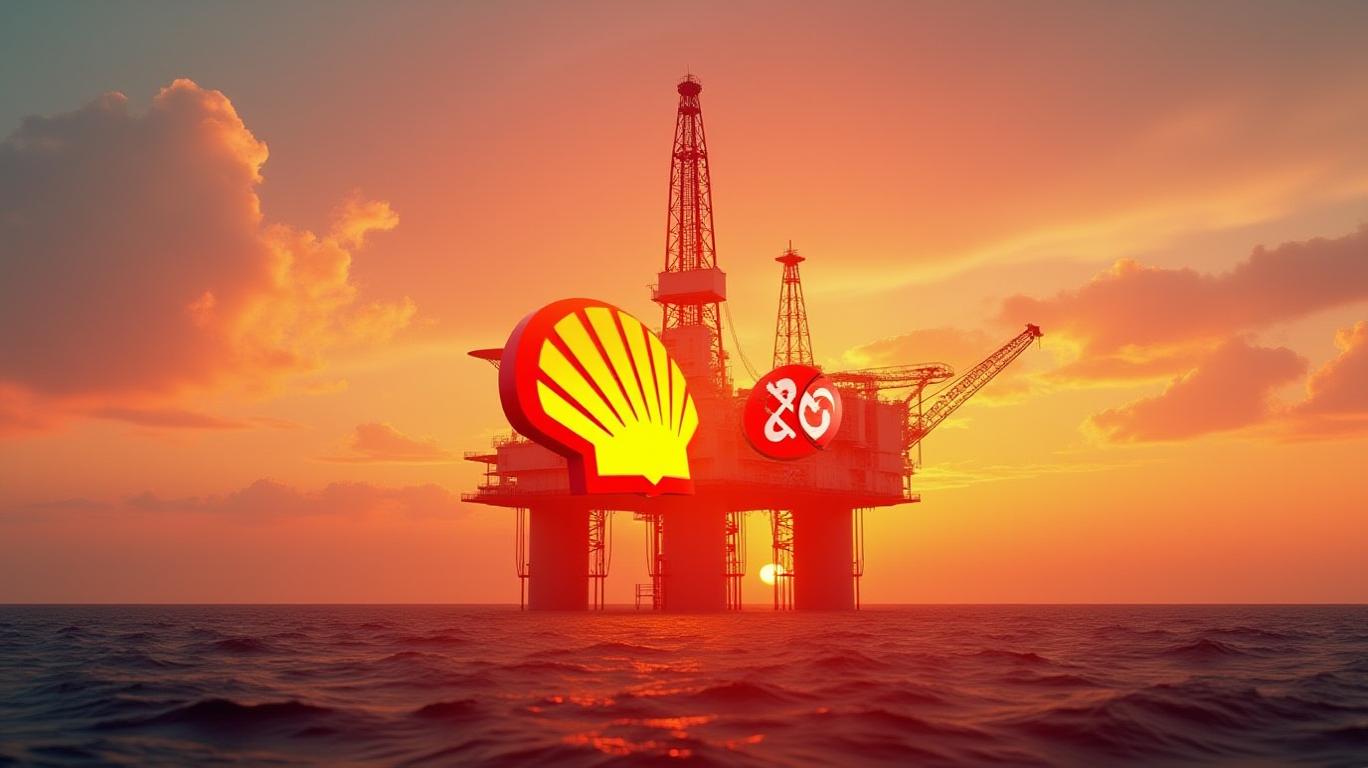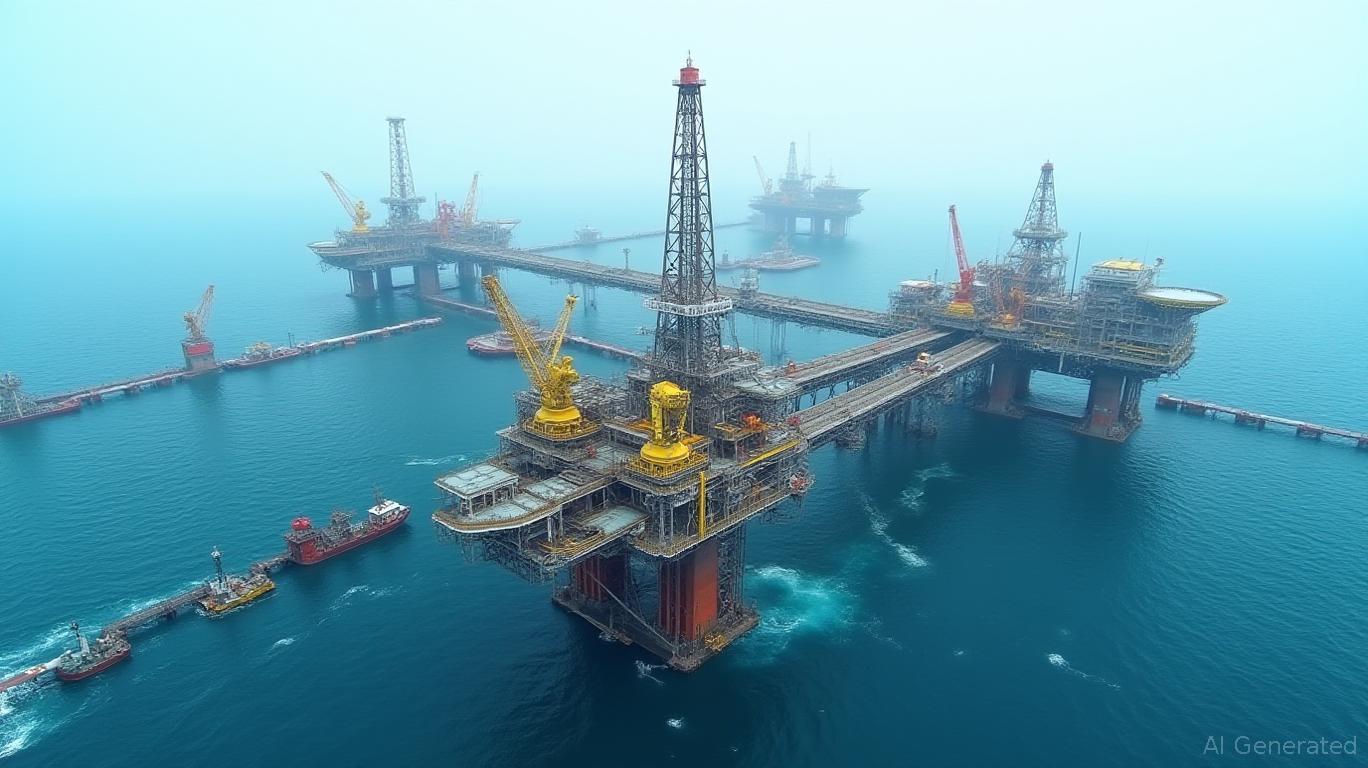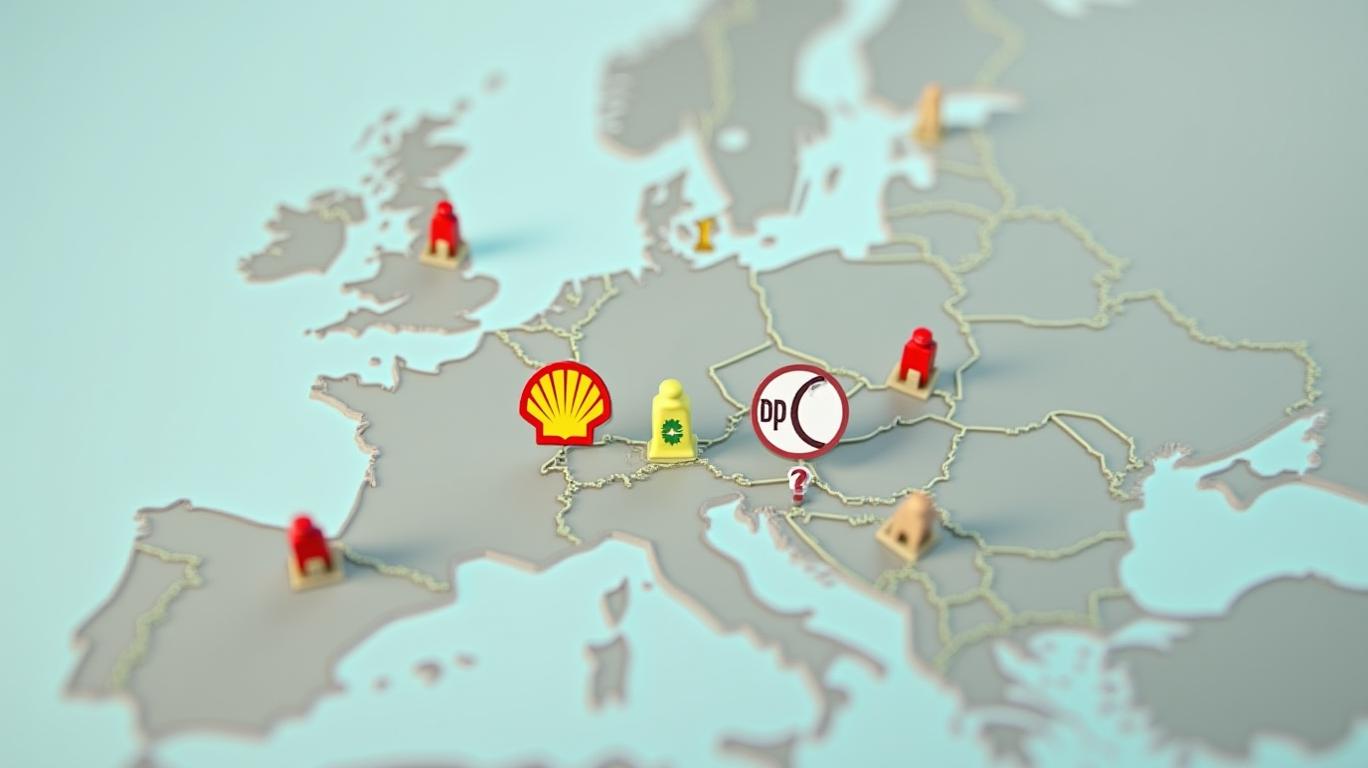Shell’s Move on BP: A Gamble Worth Taking?
The oil market is buzzing with whispers of a potential megadeal: Shell is studying the merits of acquiring BP as the latter’s stock sinks to multi-year lows. If true, this would be one of the most consequential moves in the energy sector since Exxon bought Pioneer Natural Resources. Let’s dive into whether this is a bold strategic play or a risky bet.

BP’s Struggles: A Stock in Freefall
BP’s stock has plummeted nearly 30% over the past year, hitting a 12-month low of $29.13 in Q2 2025. The slump isn’t just about low oil prices ($60s/bbl vs. BP’s $70+ assumptions). Here’s why investors are fleeing:
- Missed Earnings: Q1 2025 adjusted earnings of 53 cents/ADS fell short of estimates, with refining margins collapsing by 63% due to the Whiting refinery outage and weak global demand.
- Production Woes: BP warned its 2025 upstream output would fall below 2024 levels, despite a slight Q1 increase.
- Debt Rising: Net debt hit $27 billion, raising concerns about its investment-grade credit rating.
Activist investor Elliott Management, with a 5% stake, has been pressuring BP to sell assets and refocus. This creates a window for a buyer like Shell.
Shell’s Position: Cash-Rich and Strategic
Shell, by contrast, is in a strong financial position:
- Q1 2025 Adjusted Earnings: $5.6 billion, up 52% from Q4 2024.
- Share Buybacks: Just announced a $3.5 billion buyback, its 14th consecutive quarter of at least $3B repurchases.
- Debt Management: Net debt of $41.5 billion but a 19% gearing ratio, well within investment-grade thresholds.
Why a Shell-BP Deal Makes Strategic Sense
- Synergies Galore:
- Cost Cuts: Analysts estimate $2 billion+ in annual savings via overlapping refining and trading operations.
Asset Optimization: BP’s Gulf of Mexico oil fields and Shell’s LNG dominance could create a $300 billion combined market cap giant, rivaling Exxon.
Market Power:
- Together, they’d control 16% of global LNG exports, solidifying influence over Europe’s energy security.
BP’s $25 billion stake in Iraq’s Kirkuk oil fields could offset Shell’s declining North Sea production.
Shareholder Value:
- BP’s 33% stock decline gives Shell a cheap entry point. A $50 oil price—Shell’s breakeven for buybacks—would amplify returns.
The Risks: A Volatile Landscape
- Regulatory Hurdles: Antitrust regulators may block a merger of two refining giants.
- Cultural Clash: Shell’s cost-cutting CEO Wael Sawan vs. BP’s oil-focused Murray Auchincloss could lead to leadership conflicts.
- Execution Risk: Integrating BP’s debt-laden balance sheet and underperforming divisions like its Egyptian gas assets could strain Shell’s finances.
The Bottom Line: A Gamble with Upside
If Shell pulls the trigger, it’s betting that:
- BP’s assets can be turned around quickly (think $2 billion in annual synergies).
- Oil prices stabilize above $60/bbl, boosting free cash flow.
- Regulators greenlight the deal, seeing it as a consolidation of global energy leadership.
But the risks are massive. A failed integration or regulatory rejection could sink both stocks.
Investment Takeaway
This is a high-risk, high-reward play. If you’re a bold investor, consider buying Shell stock now—its $57.46 price leaves room for upside if the deal goes through. For the cautious, wait for clarity on BP’s valuation and regulatory approval.
In Jim Cramer’s words: “This isn’t for the faint of heart, but if Shell nails this, they’ll own the next decade of energy.”
Conclusion
The math is compelling: a merged Shell-BP could dominate LNG, oil production, and shareholder returns. But BP’s operational mess and regulatory red tape loom large. The question isn’t whether it’s possible—it’s whether it’s worth it. With BP’s stock at rock bottom and Shell’s balance sheet bulletproof, this could be the deal of the decade—or a costly misstep. Stay tuned.










